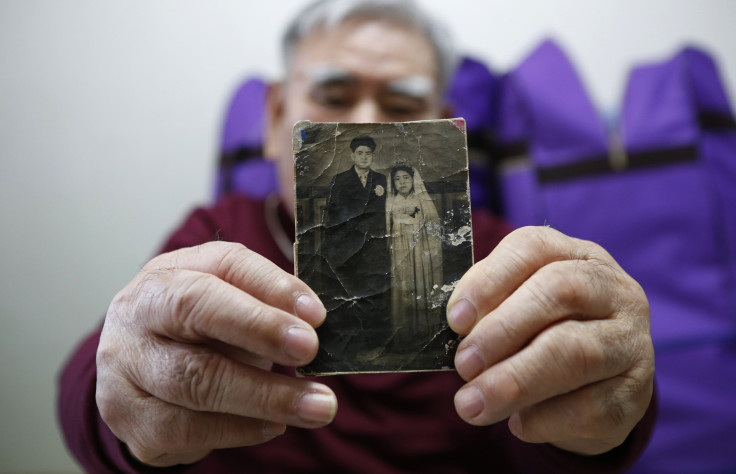Reunions Between Families In The Two Koreas Begin Thursday; More Than 500 South Koreans Start Travel To North After Decades-Long Wait

For the first time since 2010, more than 500 South Koreans are traveling north to reunite with family members who were separated by an international border following the Korean War in the 1950s.
On Thursday, which marked the first day of the five-day family reunion made possible following the latest round of talks between the two Koreas, 82 elderly South Koreans, accompanied by 58 family members, journeyed to North Korea by bus. At Mount Kumgang near the border on the northern side, 260 North Koreans were expected to reunite with their families traveling from the South at 3 p.m. local time (1 a.m. EST), according to BBC, for their first reunion in four years.
“I will first hug her and tell her that I thank her for having lived so long. Then, I will ask her when our father and mom passed away and when our sister and brother died,” Kim Se-rin, an 84-year-old retired city official from Seoul, told Associated Press. “I think this will be my last chance. How much longer can I live.”
The reunions will continue until Feb. 25 after North Korea agreed to the event, having earlier threatened to call it off if the South did not postpone joint military drills with the U.S. The drills, which are scheduled for Monday, are expected to proceed as scheduled after the South rejected Pyongyang's demand.
According to AP, about 72,000 South Koreans are on a waiting list to join the family reunion events and almost half of them are over 80. As these reunions are the only legal way for the families to see each other again, it is expected to be an emotionally-charged event.
Jang Choon, an octogenarian from South Korea, bought a new suit before he left for the North on Thursday to meet his family from whom he has been separated since the 1950-53 Korean War, Reuters reported. About 22,000 Koreans have had brief reunions -- 18,000 in person and the others by video -- before the reunions stopped in 2010.
However, there is a chance that the reunions may yet be canceled, worrying families that have waited years for a chance to see their families on the other side of the border, AP reported, as the North's demands that joint military drills be postponed haven't been met. But, the beginning of these reunions, which will allow hundreds of people to reunite with their families after more than 60 years, is seen as marking a positive change in North-South relations.
South Korean Lee Du-young, who is in his late 70s, and is on his way to the North, told BBC: "It's hard for people to understand what it's like when you've been separated so long. But it's a true miracle; I'm so elated. All that was missing in my life was my brother, and now that I can see him again, I'd have no regrets whatsoever if I were to die tomorrow."
© Copyright IBTimes 2024. All rights reserved.






















